Quotes & Sayings About Articles Of Confederation
Enjoy reading and share 10 famous quotes about Articles Of Confederation with everyone.
Top Articles Of Confederation Quotes
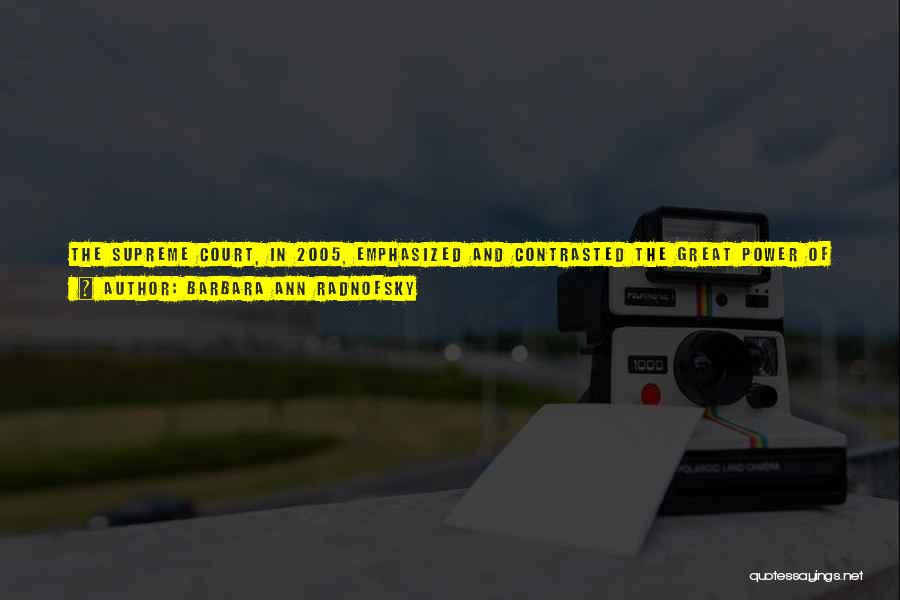
The Supreme Court, in 2005, emphasized and contrasted the great power of Congress under the Commerce Clause to regulate interstate commerce versus much more limited federal power under the discarded Articles of Confederation. — Barbara Ann Radnofsky

I fear a permanent Confederation will never be settled; tho the most material articles are I think got thro', so as to give great offence to some, but to my Satisfaction. — William Whipple
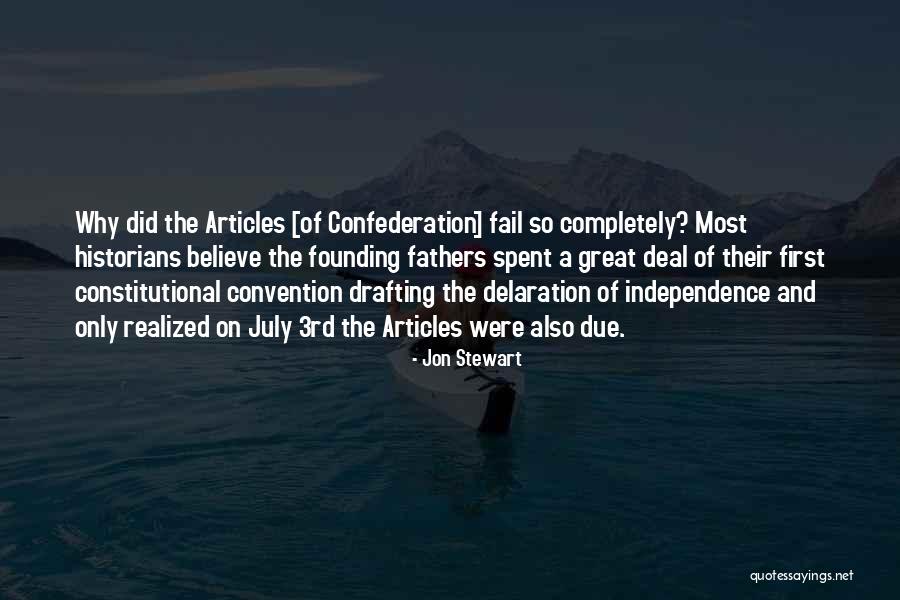
Why did the Articles [of Confederation] fail so completely? Most historians believe the founding fathers spent a great deal of their first constitutional convention drafting the delaration of independence and only realized on July 3rd the Articles were also due. — Jon Stewart
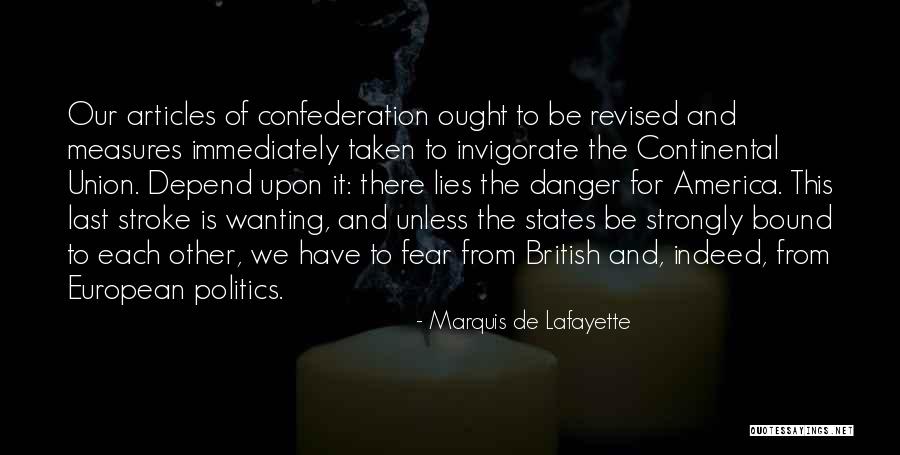
Our articles of confederation ought to be revised and measures immediately taken to invigorate the Continental Union. Depend upon it: there lies the danger for America. This last stroke is wanting, and unless the states be strongly bound to each other, we have to fear from British and, indeed, from European politics. — Marquis De Lafayette
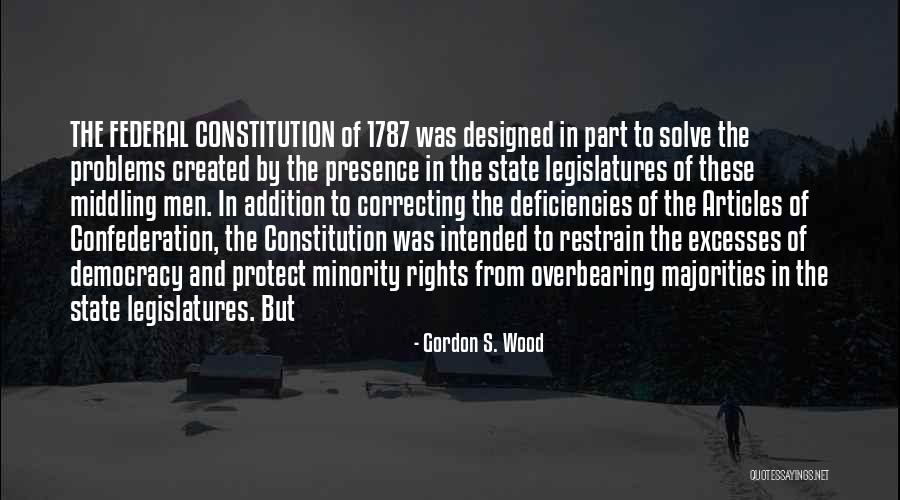
THE FEDERAL CONSTITUTION of 1787 was designed in part to solve the problems created by the presence in the state legislatures of these middling men. In addition to correcting the deficiencies of the Articles of Confederation, the Constitution was intended to restrain the excesses of democracy and protect minority rights from overbearing majorities in the state legislatures. But — Gordon S. Wood
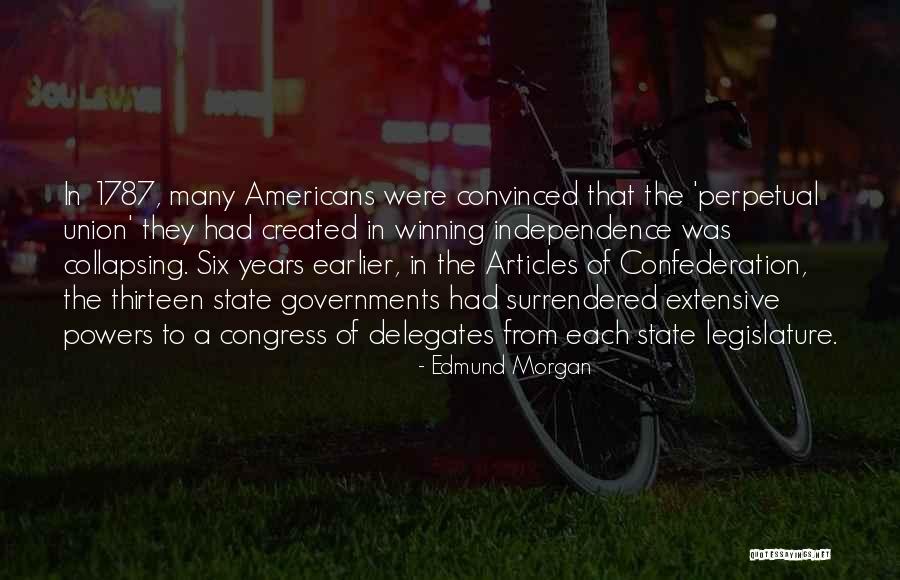
In 1787, many Americans were convinced that the 'perpetual union' they had created in winning independence was collapsing. Six years earlier, in the Articles of Confederation, the thirteen state governments had surrendered extensive powers to a congress of delegates from each state legislature. — Edmund Morgan
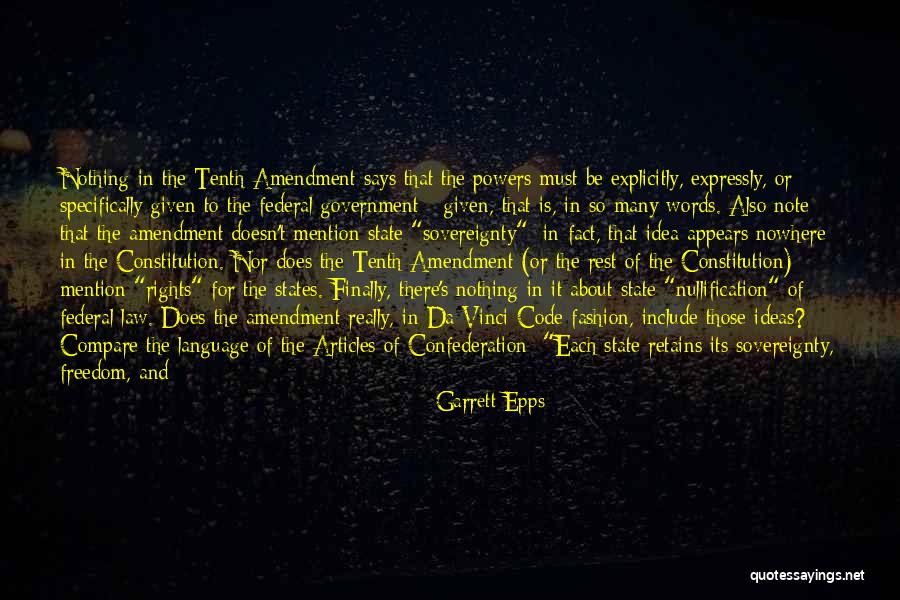
Nothing in the Tenth Amendment says that the powers must be explicitly, expressly, or specifically given to the federal government - given, that is, in so many words. Also note that the amendment doesn't mention state "sovereignty"; in fact, that idea appears nowhere in the Constitution. Nor does the Tenth Amendment (or the rest of the Constitution) mention "rights" for the states. Finally, there's nothing in it about state "nullification" of federal law. Does the amendment really, in Da Vinci Code fashion, include those ideas? Compare the language of the Articles of Confederation: "Each state retains its sovereignty, freedom, and independence, and every power, jurisdiction, and right, which is not by this confederation expressly delegated to the United States, in Congress assembled. — Garrett Epps
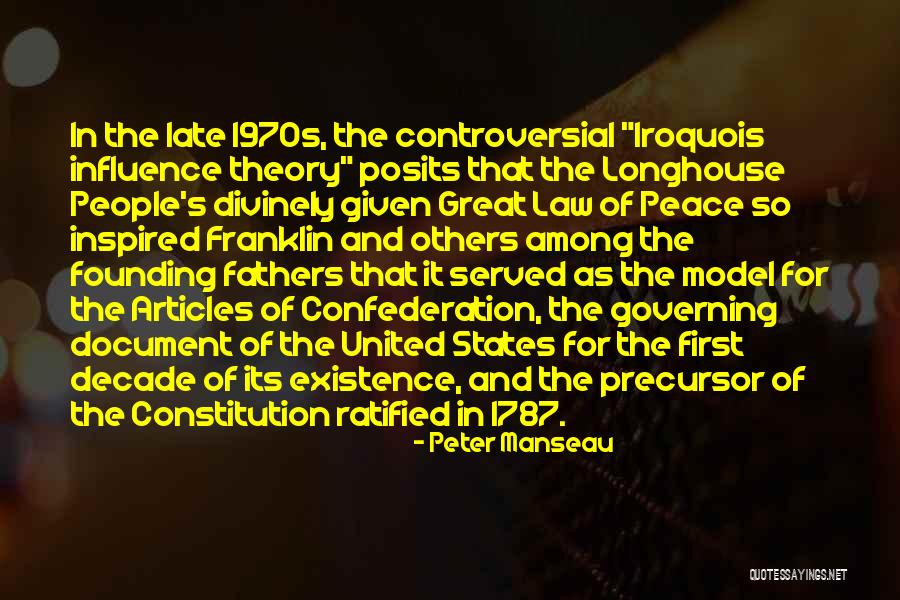
In the late 1970s, the controversial "Iroquois influence theory" posits that the Longhouse People's divinely given Great Law of Peace so inspired Franklin and others among the founding fathers that it served as the model for the Articles of Confederation, the governing document of the United States for the first decade of its existence, and the precursor of the Constitution ratified in 1787. — Peter Manseau
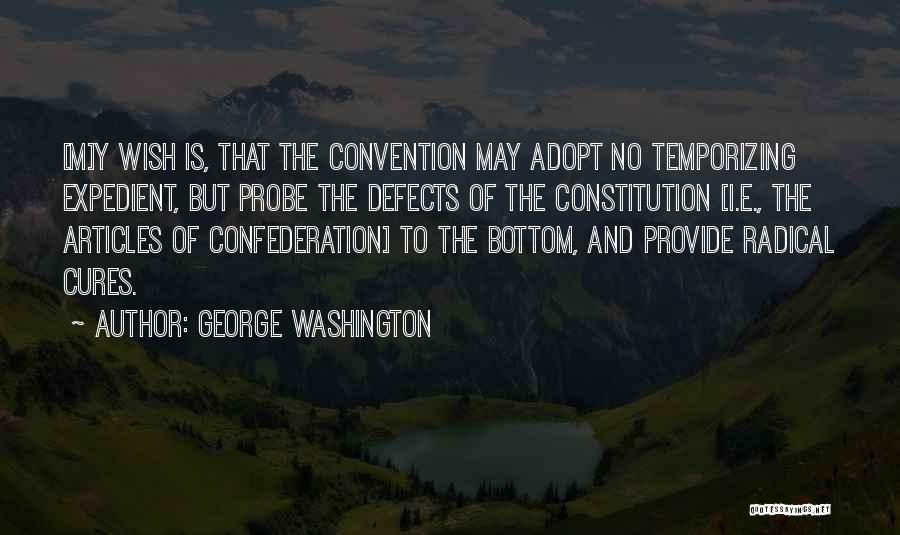
[M]y wish is, that the Convention may adopt no temporizing expedient, but probe the defects of the Constitution [i.e., the Articles of Confederation] to the bottom, and provide radical cures. — George Washington
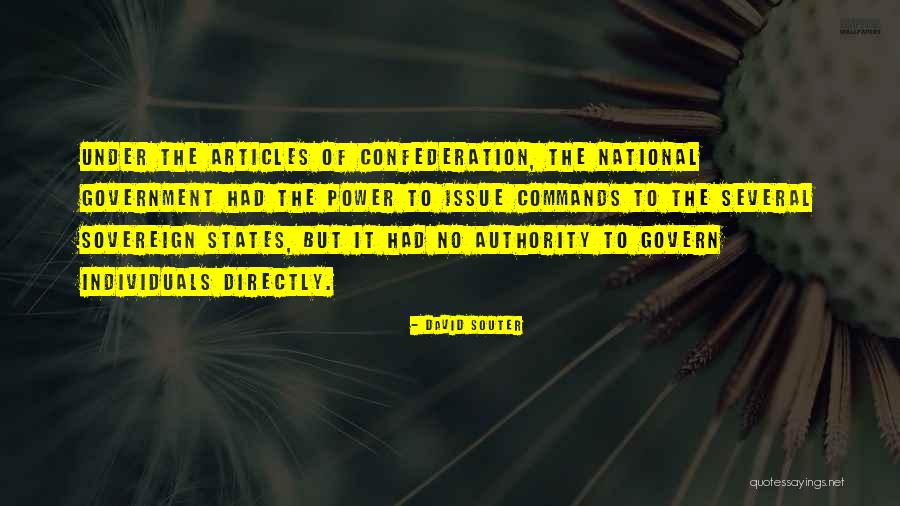
Under the Articles of Confederation, the national government had the power to issue commands to the several sovereign states, but it had no authority to govern individuals directly. — David Souter





